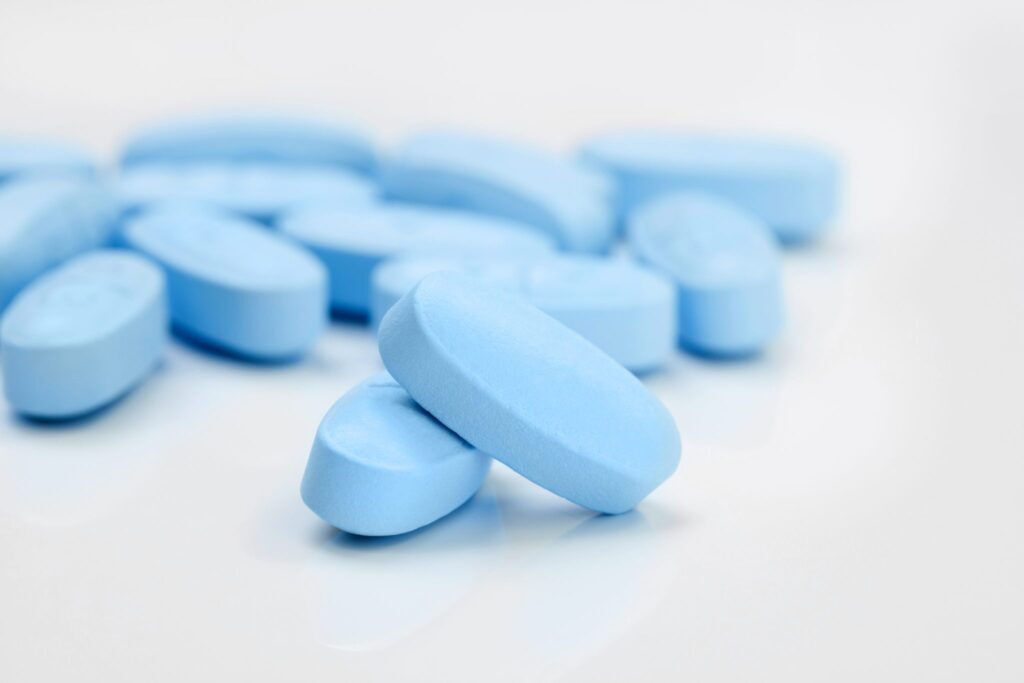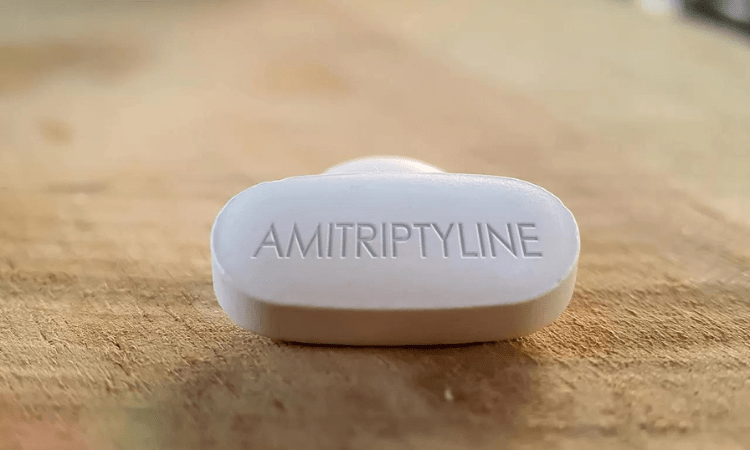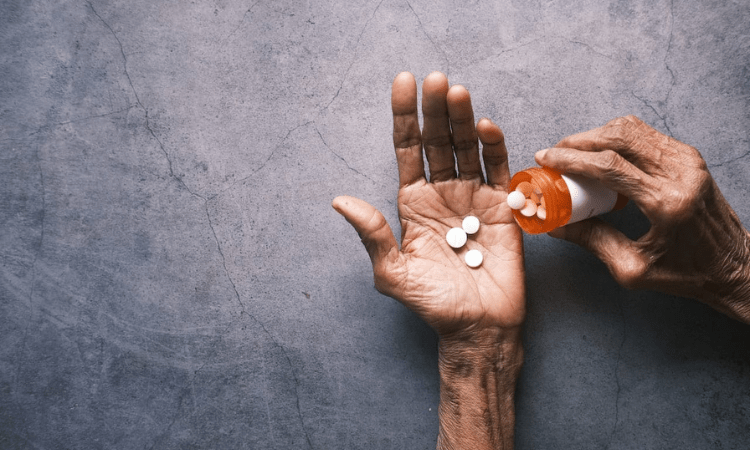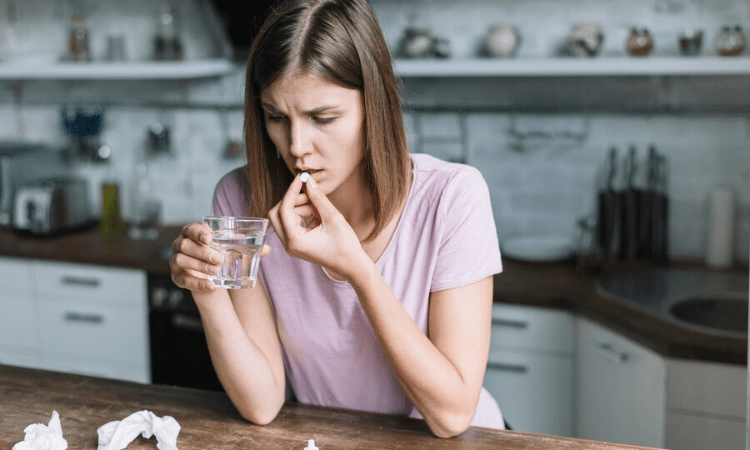Is Zoloft addictive? It’s a valid concern that many people have before starting this antidepressant medication. Zoloft, known by its generic name, sertraline, belongs to a class of selective serotonin reuptake inhibitors (SSRIs). SSRIs are not considered addictive in the same way that substances like alcohol or opioids are. The FDA approves Zoloft for treating depression, OCD, PTSD, and anxiety, with less concern for abuse compared to other drugs.
But is Zoloft addictive? Research shows that Zoloft is generally well-tolerated by most individuals. Unlike substances abused for recreational purposes, it does not produce euphoria or cravings. However, there is still a concern regarding Zoloft addiction due to the possibility of developing physical dependence over time. Read this article to find out more about Zoloft addiction and cover everything you need to know about this SSRI.
What is Zoloft?
Zoloft, also known as sertraline, is a selective serotonin reuptake inhibitor (SSRI) medication. SSRIs are commonly prescribed to treat moderate to severe depression by trapping serotonin at nerve synapses. However, Zoloft addiction and dependence may develop over time.
Zoloft is also prescribed to alleviate symptoms of depression, anxiety, OCD, panic disorder, and PTSD. It works by increasing serotonin levels in the brain, aiding mood regulation. Zoloft (sertraline) comes in both medicine and liquid antidepressants. Despite its therapeutic benefits, there are concerns regarding “is Zoloft addictive” as a few patients rely on it for withdrawal.
It’s important to follow your healthcare provider’s instructions when taking Zoloft.
How Does Zoloft Affect Someone?
Zoloft has several reported side effects, ranging from mild to severe. However, not all people who take Zoloft will experience side effects. Keep reading to learn the common, mild, and severe side effects this drug can cause.
Mild Side Effects
Some people may experience mild side effects during their Zoloft treatment.
- Nausea
- Diarrhea
- Tremors
- Decreased appetite
- Dizziness
- Excessive sweating
- Dry mouth
- Trouble sleeping
- Sleepiness
- Constipation
- Vomiting
- Sexual side effects
However, not everyone who takes Zoloft will experience side effects. Keep reading to learn about other potential side effects of this drug.
Serious Side Effects
Serious side effects that have been reported with Zoloft include:
- Seizure
- Low sodium levels
- Long QT syndrome
- Manic episodes
- Increased risk of bleeding
- Serotonin syndrome
- Risk of suicidal thoughts and behaviors
- Severe allergic reaction
Most side effects of Zoloft are usually temporary and manageable. If you experience ongoing or bothersome symptoms, consult your doctor or pharmacist. Never stop taking Zoloft unless advised by your doctor. For more information on potential side effects, refer to the drug’s prescribing information.
Boxed Warning: Risk of Suicidal Thoughts and Behaviors
Zoloft has a boxed warning for the risk of suicidal thoughts and behaviors. A boxed warning is the most severe warning from the FDA. Children and adults ages 24 years and younger are at risk of suicidal thoughts and behaviors while taking this drug.
Is Zoloft a Narcotic?
No, Zoloft (sertraline) is not a narcotic. It is a type of antidepressant medication known as a selective serotonin reuptake inhibitor (SSRI). Narcotics, on the other hand, typically refer to drugs that are used to relieve pain and often have a high potential for abuse and addiction.
Examples of narcotics include opioids like morphine, oxycodone, and heroin. Zoloft, however, works by affecting the levels of serotonin in the brain and is primarily used to treat depression, anxiety disorders, obsessive-compulsive disorder (OCD), and other mental health conditions.
Does Zoloft Get You High?
With Zoloft, dependence often involves relying on it too much, which can lead to harmful effects from using it too frequently. Identifying the signs and symptoms of potential Zoloft addiction is crucial for early intervention and support. Is Zoloft addictive? Yes, understanding the risks and realities is vital when considering this medication.
Here are some indicators to look out for:
1. Compulsive use:
Using Zoloft excessively, even beyond prescribed doses, with difficulty in controlling or cutting down usage despite adverse consequences.
2. Chasing euphoria:
Using Zoloft not for its intended therapeutic purposes but to seek feelings of euphoria, relaxation, or escapism.
3. Tolerance:
Needing higher doses of Zoloft over time to achieve the same effects can lead to increased usage.
4. Withdrawal symptoms:
Experiencing symptoms like dizziness, fatigue, irritability, and sleep disturbances when reducing or stopping Zoloft use.
5. Neglecting responsibilities:
Prioritizing obtaining and using Zoloft over fulfilling personal, professional, or social duties results in decreased functioning.
6. Continued use despite harm:
Persisting in Zoloft use despite experiencing adverse effects on physical health, mental well-being, and relationships.
7. Cravings:
Feeling intense cravings or a persistent urge to use Zoloft, leading to a preoccupation with obtaining and using the medication.
8. Behavioral changes:
Noticing significant shifts in behavior, mood swings, increased secrecy, isolation from loved ones, and changes in social interactions and priorities.
Cost of Zoloft
Zoloft’s cost can vary based on insurance coverage, location, market conditions, and dosage strength. To determine the medication’s price, it’s best to discuss it with your doctor, insurance provider, and pharmacist.
Can You Withdraw From Zoloft?
Stopping Zoloft suddenly can trigger withdrawal symptoms within 24 hours, lasting up to 2-4 weeks. Symptoms, known as antidepressant discontinuation syndrome, include dizziness, nausea, headaches, fatigue, insomnia, irritability, flu-like aches, and vivid dreams. It’s advisable to taper off SSRIs gradually under medical supervision to minimize these effects.
How to Avoid Zoloft Withdrawal Symptoms?
To avoid Zoloft withdrawal symptoms, it’s crucial to handle dosage changes carefully:
1. Taper off Slowly
Your doctor will gradually reduce your Zoloft dose over weeks or months to prevent severe side effects.
2. Take with Food
Consuming Zoloft with food aids proper absorption, potentially minimizing withdrawal symptoms if you stop later.
3. Monitor Closely
Monitor mood and behavior changes while on Zoloft and after stopping. Look out for symptoms like trouble sleeping, irritability, headaches, nausea, dizziness, fatigue, difficulty concentrating, or increased anxiety. Contact your doctor if any issues arise.
FAQS- Is Zoloft Addictive?
1. What is risky behavior on Zoloft?
Zoloft and similar antidepressants may heighten suicidal thoughts or actions, especially in individuals under 24, particularly during initial treatment or dose adjustments. Depression or other severe mental illnesses are significant contributors to these thoughts or actions.
2. Is Zoloft a high-risk drug?
Antidepressants like Zoloft can raise the risk of suicidal thoughts and behaviors in patients. This risk is highest during the initial months of treatment and dosage adjustments.
3. Do people stay on Zoloft for life?
Long-term or lifelong use of antidepressants can potentially harm both your mental and physical well-being. Prolonged use, including SSRIs like Zoloft, may sometimes lead to worsening conditions. The FDA mandates a suicide warning on the package labels of these medications.
4. Should I worry about taking Zoloft?
Most people taking this medication don’t experience severe side effects. However, notify your doctor immediately if you encounter any of the following: easy bleeding/bruising, decreased interest in sex, changes in sexual ability, muscle cramps/weakness, trembling (tremor), or unusual weight loss.
5. What is an unhealthy amount of Zoloft?
Taking more than 200mg of Zoloft is considered an overdose. Usually, Zoloft is prescribed in doses ranging from 50mg to 200mg per day. However, it’s important to note that overdose can occur within this range.
Conclusion
Like other antidepressants, tolerance to Zoloft can develop, causing the same dose to become less effective over time. If you find Zoloft isn’t as effective for you anymore, consult your healthcare provider.
They may adjust your dosage or switch you to a different antidepressant. If you’re still wondering, “Is Zoloft addictive?” it’s essential to address these concerns with your provider.









